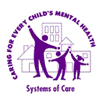Vermont Study
This is a voluntary study for young adults receiving services from their region’s funded system of care and their caregivers (or adult allies). The goal is to review how the system of care promotes positive young adult development and meets the needs of young adults who have experienced mental health, substance use, or other social problems. Interviews will be conducted close to the start of services, at 6 months, and at 12 months. The interviews will take approximately one hour and are conducted by the VCHIP team.
- Access & Barriers Survey: This measure was developed by the YIT evaluation team in response to recommendations by our evaluation advisory group the E-Team. The purpose of this survey is to ask young adults and their caregivers if they have access to things important to many young adults (e.g., driver’s license, transportation, housing, services). For those things they do have access to, we ask what helped them get them. For things they do not have access to, we ask what stopped them or got in the way.
- Young Adult Strengths Questionnaire: This measure was also developed by the YIT evaluation team to learn more about the strengths of young adults. We developed our own measure because most measures did not target strengths of young adults, and did not consider one of the most common ways of thinking about strengths in Vermont: The Circle of Courage model. Items were designed to reflect the four Circle of Courage categories: Belonging, Mastery, Independence, and Generosity. There are young adult and caregiver versions of this questionnaire.
- Young Adult Strengths Interview: We developed a semi-structured strengths interview as a companion to the Young Adults Strengths Questionnaire. Rather than rate how much they feel a list of strengths is like them, in this interview young adults have the opportunity to offer their own ideas on what they are good at and do well. There are young adult and caregiver versions of this questionnaire.
- Life Incidence of Traumatic Events (LITE): The purpose of this questionnaire is to ask whether participating young adults have ever experienced different types of traumatic events. If they have, there are follow up questions on how much it upset them when the event(s) occurred and at present.
- Stress Index for Parents of Adolescents (SIPA): The SIPA was designed to measure parenting stress in parents of adolescents. A similar measure is used in the National Study, but does not focus on young adults.
- Vermont Substance Use Survey: This questionnaire was designed to assess the types and frequency of young adult’s use of cigarettes, alcohol, and other drugs.
- Young Adult Health Care Survey: Developed by the Foundation for Accountability, this survey was designed to assess the types and frequency of health care services that young adults are accessing.
- Achenbach Scales: Child Behavior Checklist, Youth Self-Report, Adult Self-Report: These are three separate questionnaires that are part of the Achenbach System of Empirically Based Assessment (ASEBA). The purpose of each of these measures is to assess the severity of a range of problem behaviors. The Child Behavior Checklist is completed by caregivers of young adults 18 years or younger. The Youth Self-Report is completed by young adults 18 years or younger. And the Adult Self-Report is completed by young adults 18 years or older.










